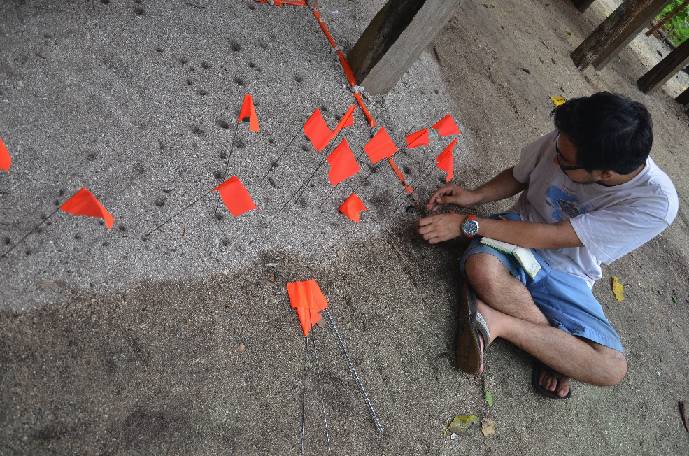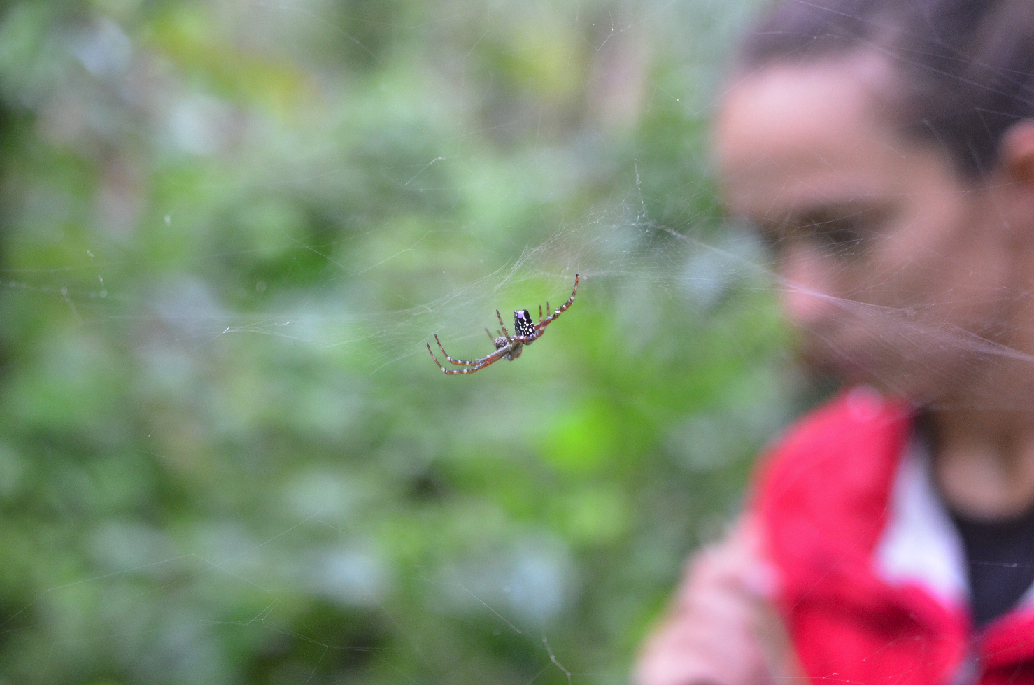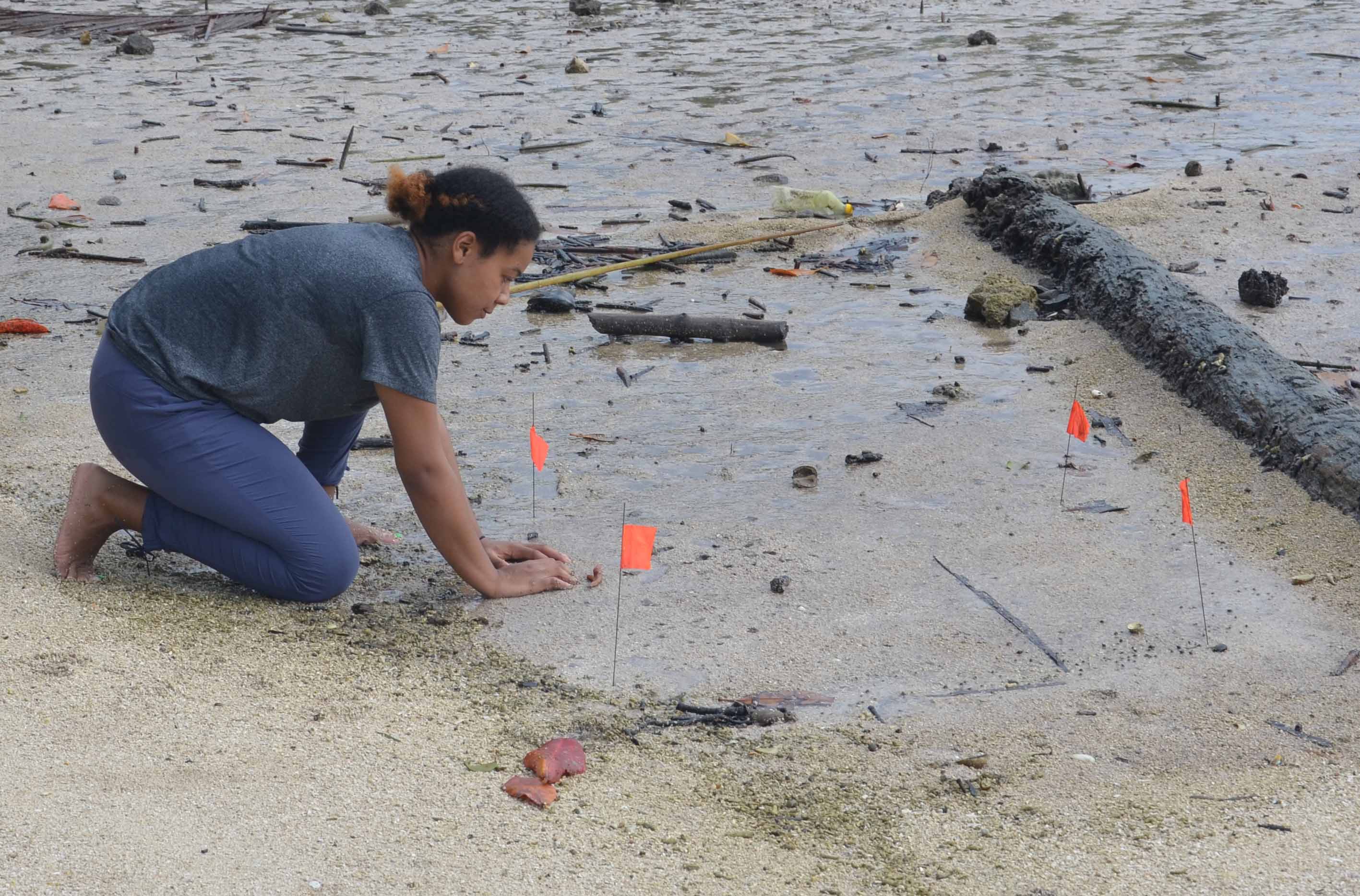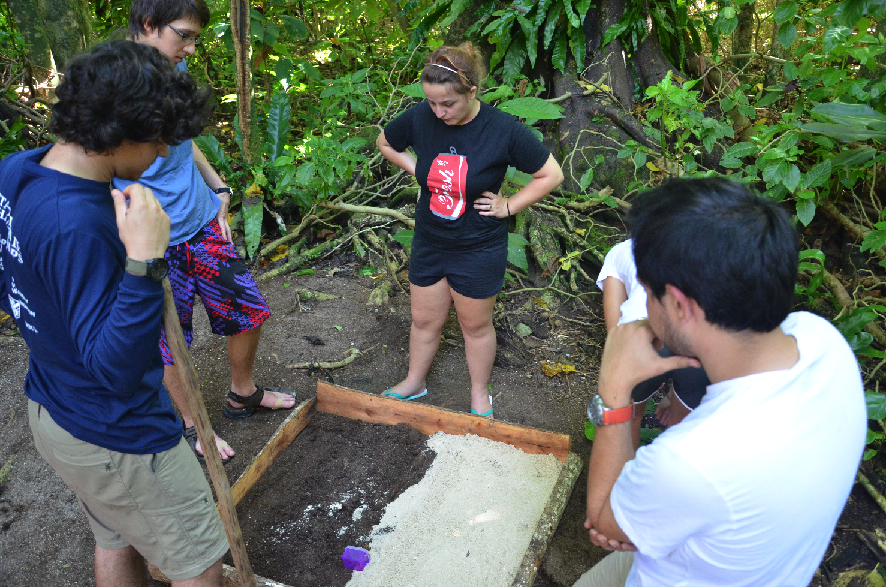
| |
| SI Field Course Home |
| The Course |
| Instructors |
| Solomon Islands Background |
| Hazards |
| Preparations |
| Useful Links |
| Back to the Mora-Kepfer Uy Lab |
| Back to the Uy Lab |
SOLOMON ISLANDS FIELD COURSE |
 |
| For his individual project, Daniel Franco explored the ability of terrestrial and arboreal ants in avoiding predation by antlions. |
| Course Materials |
| Packing List |
|
|
General expectations. We are guests of the people of the Solomon Islands, and so we should treat everyone with respect. Each student is required to behave in a mature manner, and are expected to follow these guidelines during the course, as well as your travels before and after the course: |
1. Respect for all laws and customs of the Solomon Island |
| 2. No travel in backcountry areas or out on the sea with the express consent of one of the team leaders. |
| 3. Follow all the safety guidelines and instructions provided by the team leaders |
| 4. Wear personal floatation devices during all open boat travel |
| 5. Respect for all team members, including fellow students and our Solomon hosts. |
| 6. No consumption of alcoholic beverages. |
Ernergencies: We will be isolated for the duration of the course, so be prepared not to interact with loved ones from the U.S. Upon arrival, you will have an opportunity to contact home. You will, however, have the ability to contact home in case of emergencies. Emergency contact will be posted shortly. |
 |
| For her individual project, Christine explored how websize, prey capture and female body size attracts male spiders. |
 |
| Jasmyne monitors fiddler crab behavior at Mantawaira, Makira Island. |
 |
| Students building a test arena to determine if ghose crabs, which are cryptic against white sand, actively choose a white background to avoid detection by predators. |